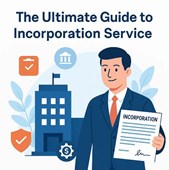Bookkeeping and transfer pricing best practices in USA

Bookkeeping and transfer pricing are two important aspects of accounting that affect the financial performance and tax liability of a company. Bookkeeping is the process of recording and reporting the financial transactions and activities of a company. Transfer pricing is the practice of setting the price for goods or services exchanged between related parties within the same company.
Both bookkeeping and transfer pricing require accuracy, consistency, and compliance with the relevant rules and regulations. In this blog, we will discuss some of the best practices for bookkeeping and transfer pricing in USA, and how they can help you improve your business efficiency and profitability.
Bookkeeping Best Practices
Bookkeeping is essential for keeping track of your income, expenses, assets, liabilities, and equity. It also helps you prepare your financial statements, tax returns, budgets, forecasts, and other reports. Bookkeeping can be done manually or electronically, using software or online platforms.
Some of the best practices for bookkeeping in USA are:
- Separate your personal and business finances. Use different bank accounts, credit cards, and accounting systems for your personal and business transactions. This will help you avoid confusion, errors, and tax issues.
- Record your transactions regularly and accurately. Update your books at least once a week or more frequently if needed. Use reliable sources of information, such as receipts, invoices, bank statements, etc. Categorize your transactions according to their nature and purpose, such as income, expense, asset, liability, etc.
- Reconcile your accounts periodically. Compare your records with your bank statements and other external sources to ensure that they match and there are no discrepancies or errors. Identify and correct any mistakes or omissions as soon as possible.
- Review your financial reports regularly. Generate and analyze your financial reports, such as income statement, balance sheet, cash flow statement, etc. at least once a month or more often if needed. Use these reports to monitor your financial performance, identify trends, opportunities, or problems, and make informed decisions.
- Keep your records organized and secure. Store your records in a safe and accessible place, either physically or electronically. Use a filing system that allows you to find what you need easily and quickly. Backup your records regularly and protect them from loss, damage, or theft.
- Follow the accounting principles and standards. Use the generally accepted accounting principles (GAAP) or other relevant standards for preparing your financial statements and reports. Follow the accounting policies and procedures that are appropriate for your business type, size, industry, etc.
- Seek professional help when needed. Hire a qualified accountant or bookkeeper to assist you with your bookkeeping tasks or provide advice or guidance when needed. You can also use online platforms or software that offer bookkeeping services or solutions.
Transfer Pricing Best Practices
Transfer pricing is important for allocating profits and costs among different divisions or entities within the same company. It also affects the tax liability of the company, as different countries or regions may have different tax rates or rules for intercompany transactions.
Some of the best practices for transfer pricing in USA are:
- Use the arm's-length principle. Set your transfer prices at levels that reflect the market prices that would be charged by unrelated parties for similar goods or services under similar circumstances. This will help you avoid under-pricing or overpricing your intercompany transactions and comply with the tax laws.
- Choose an appropriate transfer pricing method. Use one of the specified methods or an unspecified method that is consistent with the arm's-length principle to determine your transfer prices. The specified methods are: comparable uncontrolled price method (CUP), resale price method (RPM), cost plus method (CPM), profit split method (PSM), comparable profits method (CPM), or unspecified methods (USM). The choice of method depends on various factors such as availability of data, comparability of transactions, functional analysis of parties involved etc.
- Document your transfer pricing policies and practices. Maintain sufficient documentation to support your transfer pricing decisions and calculations. The documentation should include: description of transactions involved; selection and application of transfer pricing method; comparability analysis; functional analysis; economic analysis; etc.
- Provide your documentation to the IRS upon request. If the IRS audits your transfer pricing transactions, you should provide your documentation within 30 days of their request to avoid penalties or adjustments. The documentation should be in existence when the return is filed and should be adequate and reasonable.
- Review and update your transfer pricing policies and practices periodically. Monitor changes in market conditions, business operations, tax laws etc. that may affect your transfer pricing transactions. Adjust your transfer prices accordingly to reflect the current situation and maintain the arm's-length principle.
Bookkeeping and transfer pricing are two vital aspects of accounting that can have a significant impact on your business success. By following the best practices for bookkeeping and transfer pricing in USA, you can improve your financial accuracy, efficiency, profitability, and compliance.
If you need professional help with your bookkeeping and transfer pricing tasks, you can visit Sulekha.com. You can find expert bookkeeping services registered in its portal that can assist you with your accounting needs. You can also compare different services and choose the one that suits your preference and budget. Book your service online through Sulekha.com with just a few clicks and get instant confirmation via email or SMS.
Searching for Financial & Taxation Services? Let’s make your search simple with professionals!
Take your Financial & Taxation Services to the next level with Sulekha. Boost your online visibility, connect with more clients, and grow effortlessly!
Blogs Related to Financial & Taxation Services

Unlocking a Company’s Story: Is Financial Statement Analysis the Key?
Unlocking a Company’s Story: Is Financial Statement Analysis the Key? Every business tells its story not just through its products or services, but through numbers—its financial statements. At Northeast Solution CPA, a trusted CPA firm in Edison, NJ

The Ultimate Guide to Incorporation Service: Where Should You Start?
The Ultimate Guide to Incorporation Service: Where Should You Start? Starting a new business is exciting—but it can also feel overwhelming when it comes to legal requirements and tax readiness. That’s where Northeast Solution CPA, a trusted CPA firm

Should You Use a Money Transfer Service or Your Bank?
Should You Use a Money Transfer Service or Your Bank? Introduction Sending money is now a daily task—splitting rent, paying contractors, helping family abroad, or moving funds between accounts. The tricky part is deciding whether a money transfer s

Do Your Banking Services Meet Your Financial Goals?
Do Your Banking Services Meet Your Financial Goals? Introduction Your bank shouldn’t just store money—it should help you hit your financial goals. Whether you’re building an emergency fund, saving for a down payment, planning retirement, or managin

Want to Grow? Is Your Business Entity Selection Built for Scaling?
Want to Grow? Is Your Business Entity Selection Built for Scaling? Introduction When starting a new venture, the last thing many entrepreneurs think about is business entity selection. Yet this single choice — whether you form an LLC, S Corporation

Confused by Personal Tax Planning? How Do You Make It Simpler?
Confused by Personal Tax Planning? How Do You Make It Simpler? Introduction Every year, millions of Americans face the same question: “Am I doing my taxes right?” From figuring out which deductions apply to navigating ever-changing tax codes, perso




